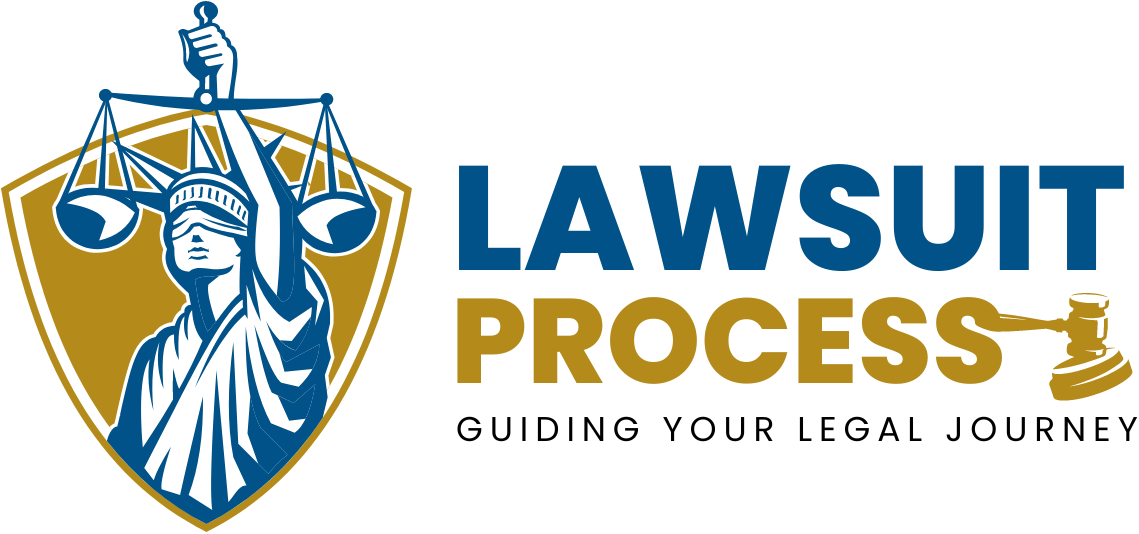In the United States, beneficiary disputes often arise when there are disagreements over the distribution of assets after a person passes away. These disputes can involve various types of beneficiaries, including those named in a will, trust, life insurance policy, or retirement account. Such disputes may lead to lawsuits, especially when beneficiaries believe they have been wrongfully excluded or when there is suspicion of undue influence, fraud, or mismanagement. Understanding the legal process for resolving beneficiary disputes is crucial for those involved in estate planning or litigation. This article provides a detailed overview of the beneficiary disputes lawsuit process in the U.S., including the legal grounds for disputes, the role of the courts, and the steps involved in litigation.
Common Causes of Beneficiary Disputes
Beneficiary disputes can arise for a variety of reasons. Some of the most common causes include:
- Ambiguities in the Will or Trust: When a will or trust is not clear about how assets should be distributed, beneficiaries may disagree on their respective entitlements.
- Disinheritance: A beneficiary who expected to inherit from a decedent may contest the will if they are disinherited or receive a significantly smaller portion than anticipated.
- Undue Influence: A beneficiary may allege that the decedent was improperly influenced by another person, such as a caregiver or relative, to alter the will or trust in their favor.
- Fraud or Forgery: Beneficiaries may challenge the validity of a will or trust if they believe it was fraudulently created or signed by someone other than the decedent.
- Mental Incapacity: A common ground for dispute is the allegation that the decedent lacked the mental capacity to create or amend a will or trust.
- Fiduciary Misconduct: Trustees, executors, or other fiduciaries responsible for managing the estate may be accused of mismanagement or breach of their fiduciary duties.
Legal Grounds for Contesting a Will or Trust
In order to contest a will or trust, a beneficiary must have valid legal grounds. Not all disagreements warrant a lawsuit, but the following are common grounds for contestation:
Lack of Testamentary Capacity
Testamentary capacity refers to the mental ability of the decedent to understand the nature of their estate, the extent of their assets, and the beneficiaries to whom they wish to leave their property. If a beneficiary can prove that the decedent lacked this capacity at the time the will or trust was created or amended, the court may declare the document invalid.
Undue Influence
Undue influence occurs when a person in a position of trust manipulates the decedent into making decisions that benefit them. To prove undue influence, the challenging party must show that the influencer exerted significant pressure on the decedent, to the point that the decedent’s free will was overpowered.
Fraud or Duress
Fraud occurs when someone deceives the decedent into signing a will or trust, believing it to be something else, or when false information is provided that influences the decedent’s decisions. Duress involves the use of threats or coercion to compel the decedent to make specific decisions regarding their estate.
Improper Execution
A will or trust must meet specific legal requirements to be valid, including proper signatures and witness procedures. If these formalities were not followed, the document could be challenged on the basis of improper execution.
Filing a Beneficiary Dispute Lawsuit
If a beneficiary wishes to challenge a will, trust, or other estate document, they must file a lawsuit in probate or civil court. The process typically involves several steps:
1. Initial Review of the Estate Documents
The first step in a beneficiary dispute is to thoroughly review the estate documents, including the will, trust, or other relevant papers. Legal counsel will examine these documents for any inconsistencies, ambiguities, or potential grounds for dispute. In many cases, attorneys may also review medical records and other documents related to the decedent’s capacity at the time the estate documents were executed.
2. Filing a Petition in Probate Court
To initiate a lawsuit, the challenging beneficiary must file a petition in the appropriate probate court. This petition outlines the grounds for contesting the will or trust, and requests the court to intervene and settle the dispute. Each state has specific rules governing the filing process, including deadlines for contesting estate documents. In many states, beneficiaries have a limited time to file a dispute after the will has been submitted to probate.
3. Service of Process
Once the petition has been filed, the challenging party must serve a copy of the complaint on all interested parties. This typically includes other beneficiaries, executors, trustees, and any other individuals or entities involved in the administration of the estate. Proper service of process is crucial, as failure to notify all parties can result in the dismissal of the case.
4. Discovery Process
The discovery phase allows both sides to gather evidence to support their claims. During discovery, the parties may exchange documents, such as medical records, financial statements, and correspondence between the decedent and the beneficiaries. Depositions may also be taken, in which witnesses, including family members, fiduciaries, and healthcare providers, are questioned under oath. Discovery is a critical part of the litigation process, as it allows the parties to build their case before trial.
5. Settlement Negotiations
Many beneficiary disputes are settled before they reach trial. During settlement negotiations, the parties may attempt to resolve their differences through mediation or arbitration. These alternative dispute resolution methods can be more cost-effective and quicker than going to trial. If the parties reach a settlement, the terms are typically documented in a written agreement, which is then submitted to the court for approval.
6. Trial
If the parties are unable to settle the dispute, the case will proceed to trial. A probate judge or jury will hear the evidence and arguments from both sides before making a decision. The trial process can be lengthy and costly, depending on the complexity of the case and the number of witnesses involved. At trial, both sides will present evidence to support their claims, including witness testimony, expert opinions, and documentary evidence. The judge or jury will ultimately decide whether the will or trust should be upheld or invalidated.
7. Appeals
Following the trial, the losing party may appeal the decision to a higher court. Appeals are typically based on legal errors made during the trial, rather than factual disagreements. The appellate court will review the trial record and determine whether the probate judge applied the law correctly. If the appellate court finds that an error occurred, it may reverse or modify the decision.
Role of the Probate Court
In the United States, probate courts play a central role in resolving beneficiary disputes. These courts have jurisdiction over the administration of estates, including the interpretation and enforcement of wills and trusts. In cases where a beneficiary dispute arises, the probate court will determine the validity of the estate documents and ensure that the decedent’s wishes are carried out in accordance with the law.
Probate courts are tasked with protecting the rights of all interested parties, including beneficiaries, creditors, and heirs. They also oversee the actions of fiduciaries, such as executors and trustees, to ensure that they fulfill their duties in accordance with the terms of the will or trust.
Challenges Faced by Beneficiaries
Beneficiaries involved in disputes often face significant emotional and financial challenges. Litigation can be expensive, and legal fees can quickly deplete estate assets. Additionally, family dynamics can complicate disputes, as tensions between beneficiaries may exacerbate disagreements. In some cases, disputes may lead to permanent rifts within families.
Beneficiaries also face the risk that the estate will be significantly diminished by the costs of litigation, leaving less to distribute among the heirs. For this reason, many beneficiaries opt to pursue settlement or mediation to resolve their disputes without resorting to trial.
Tips for Preventing Beneficiary Disputes
While not all beneficiary disputes can be avoided, there are several steps that individuals can take during the estate planning process to reduce the likelihood of conflict:
- Clear and Precise Wording: Wills and trusts should be drafted with clear, unambiguous language to minimize the potential for misinterpretation.
- Regular Updates: Individuals should update their estate plans regularly to reflect changes in family dynamics, financial circumstances, and relationships.
- Open Communication: Open communication with family members and beneficiaries can help manage expectations and prevent surprises after the individual’s death.
- Use of Professional Fiduciaries: Appointing a neutral, professional fiduciary to manage the estate can reduce the potential for disputes among family members.
- Medical Documentation: If there is any question about an individual’s mental capacity, obtaining medical evaluations can provide valuable evidence to support the validity of the will or trust.
Conclusion
Beneficiary disputes are a common occurrence in the United States, particularly when large estates or complicated family dynamics are involved. The lawsuit process can be long, costly, and emotionally taxing for all parties involved. However, with proper estate planning and a clear understanding of the legal grounds for contestation, beneficiaries and fiduciaries can navigate the litigation process more effectively. By addressing potential areas of conflict during the estate planning process, individuals can reduce the likelihood of disputes arising after their death and ensure that their final wishes are respected.










